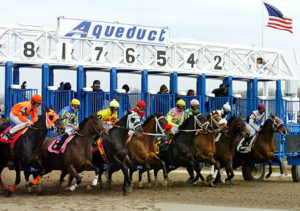Gambling on soccer once meant reading the sports pages, listening to pre-match chatter, trusting pundits and gut feelings. Then data quietly moved in. Match reports expanded. Player metrics multiplied. Suddenly a missed tackle, a shift in formation, a run of away games didn’t feel like subtle background noise but like key inputs. The past few years have turned those inputs into tools. Betting is no longer superstition stretched across the weekend but something built from patterns, probabilities and polls.
Platforms everywhere have taken note. Reputable betting platforms have begun using data in ways listeners of the game can understand. On Soccer Betway and elsewhere, odds are tied more tightly to analytics than ever before. Past performance, recent injuries, weather, home advantage, even player conditioning feed into algorithms that spit out probabilities. It is less about cheering your favourite and more about studying the trends. Betting becomes preparation not hope.
The Rise of Expected Goals and New Metrics
“Expected goals” or xG changed everything. When statisticians started assigning values to chances instead of just counting goals we got a better sense of how teams actually perform over time. A shot from a tight angle or after a defensive error carries less xG than one from close and clean. Over seasons that means you can spot teams that look fragile despite flashy wins or teams punished by luck but strong in structure. Bettors began to lean on these numbers to judge value in bets, not just results.
Alongside xG, metrics like pass networks, pressing intensity and turnover rates turned into betting signals. Star players missing due to injury, or teams who concede early tend to lose momentum—these factors became measurable. With enough matches and cleansed data you begin to see that some outcomes are more likely than they appear if you only watch the highlights. Data makes betting less blind, more calibrated.
Machine Learning and Predictive Models
Machine learning models now analyse past matches, player stats, formations, even minute-by-minute match events to predict outcomes. Studies have shown that ML can reduce error margins in predicted results by measurable amounts compared to older statistical models. Arxiv papers illustrate how training data from past seasons helps forecast odds more precisely.
These models do not guarantee wins—they never will—but they give bettors tools to identify value bets: those bets where odds offered are less precise than the true probability model suggests. In practice that means spotting underdogs more wisely or avoiding matches where favourite status is overweighted.
Real-Time Data and In-Match Betting
Live betting markets changed the game again. Previously you placed a bet before kick-off and then watched. Now odds adjust as the match unfolds. A red card, a substitution, even weather changes get folded into live models. Real-time statistics allow odds to shift, sometimes dozens of times in one match.
These live adjustments increased engagement and risk alike. They demand attentiveness. Bettors who follow in-match data, events like corners, possession changes or shots on target can react in ways old timers might call impulsive but are actually built on layered statistical triggers. It becomes a chess game unfolding on the pitch, bit by bit.
How Data Changed Risk Management
Old betting was risk by experience. Handful of losses, handful of wins, hope one covers the rest. New risk management uses models and probabilities to set stakes. Bettors allocate portions of bankroll proportional to how “sure” a bet looks in model terms. What once was gut becomes strategy. Watching odds move with probability helps bettors avoid overcommitting to shaky favourites or overbetting volatile outcomes.
Models also help test strategies over past seasons. Back-testing: taking a betting strategy and applying it to historical data to see how it might have fared. If you see a pattern—say betting overs goals when both teams are strong in attack and weak in defence on certain grounds—that strategy can be validated or rejected before actual money is risked. It’s turning betting into something more like investment planning than hope.
Ethics, Regulation and Data Transparency
As statistics shape more betting decisions, issues of fairness and regulation have followed. Publicly available data must remain transparent. If odds are derived from data few can access or interpret, edge swings unfairly. Leagues and sports data companies have incentive to maintain accuracy, because unreliable data distorts betting markets and can damage trust.
Regulators are paying attention. They monitor whether betting markets expose bettors to undue risk, whether odds are fair and whether those using models for insider advantages have transparency. Good regulation keeps the landscape honest. Without it, statistical revolution risks looking like privilege for those with deepest pockets.
Why It Changes How People Bet and Watch
With statistics baked into betting, watchers no longer sit back just for the result. They watch possession, build-ups, probability of shots, what xG trends say. A match no longer ends at full time; the data around it lingers. Fans debate heat maps, metrics, how expected goals matched what actually happened. Betting and watching converge.
For bettors the revolution means decisions have more grounding. Less rooting for underdog, more seeing opportunity. Less fearing lost bets, more sizing risk carefully. The odds offered aren’t just guesses—they are expressions of quantified belief. And that makes betting feel less like chance and more like informed engagement.
Why the Revolution Endures
Statistical approaches endure because they work not just in lab but in real life. Models offering even modest improvements in accuracy or odds selection compound over time. Patterns that looked invisible before become visible. Bettors become better calibrated. Confidence grows. The field keeps innovating—better data, faster algorithms, richer metrics.
Soccer is global, millions of matches, countless players, changing conditions. The statistical revolution offers a way to navigate that complexity. It makes betting more nuanced, less speculative. For people who love the game and want to bet, this revolution gives clarity. That is the lasting change.



 The Evolution of Sports Betting in India
The Evolution of Sports Betting in India




